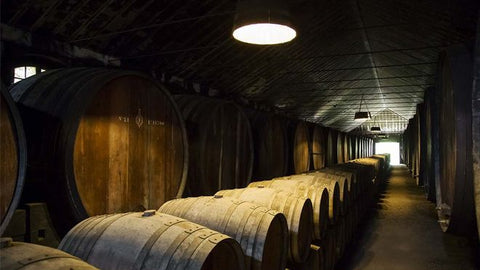Portugal is renowned for its picturesque landscapes, warm hospitality, and, of course, its exquisite wines. While Port wine often steals the spotlight, another hidden gem awaits discovery in the world of Portuguese winemaking: fortified wine. With a long and storied history, Portuguese fortified wines offer a unique sensory experience that captures the essence of the region's winemaking traditions. In this blog post, we invite you to delve into the world of Portuguese fortified wine and uncover its rich heritage. A Historical Tapestry: The origins of Portuguese fortified wine date back centuries, with a fascinating tapestry woven from the country's diverse cultural influences and seafaring past. As Portuguese explorers set sail to distant lands, they discovered new flavors and techniques, which they skillfully incorporated into their winemaking practices. The fortified wine tradition was born from this spirit of exploration and innovation, resulting in the creation of distinctive wines that continue to captivate enthusiasts today.
Types of Fortified Wine:
Portugal boasts a variety of fortified wines, each with its own character and charm. The most well-known is Port wine, hailing from the picturesque Douro Valley. Port is celebrated for its richness, complexity, and incredible aging potential. Whether you prefer a youthful and fruity Ruby Port or a mature and refined Tawny Port, there is a style to suit every palate. Beyond Port, the country also produces other fortified wines worth exploring. Moscatel de Setúbal, from the Setúbal Peninsula, showcases the aromatic Muscat grape, resulting in a luscious and sweet wine with notes of orange blossom and honey. Madeira, a fortified wine produced on the island of the same name, boasts a distinct caramelized character due to the unique aging process that involves exposure to heat and oxygen. Madeira wines range from dry and crisp to rich and decadent, providing a delightful sensory journey.
Winemaking Craftsmanship:
The production of Portuguese fortified wine is a labor of love, requiring expertise, patience, and meticulous craftsmanship. The winemakers carefully select grapes from specific vineyards, often employing traditional methods such as foot treading to extract the optimal flavors. Fermentation is halted by the addition of grape spirit, a process known as fortification, which preserves the wine's natural sugars and boosts its alcohol content. Aging occurs in oak barrels or casks, allowing the wine to develop its distinctive character and achieve the desired balance of flavors.
Pairing Possibilities:
Portuguese fortified wines offer a delightful array of pairing possibilities. The sweet and fruity character of Ruby Port harmonizes beautifully with dark chocolate, blue cheese, or dried fruits. Tawny Ports, with their nutty aromas and mellow profile, complement desserts like crème brûlée or almond-based pastries. Moscatel de Setúbal's aromatic sweetness marries well with caramel desserts, while Madeira's unique complexity pairs exceptionally with savory dishes like roasted game meats or aged cheeses.
Conclusion:
Portuguese fortified wines represent the epitome of craftsmanship, tradition, and the rich heritage of winemaking in the country. Whether you're savoring a glass of Port after a meal, exploring the intricate flavors of Madeira, or indulging in the aromatic delights of Moscatel de Setúbal, each sip transports you to the sun-kissed vineyards and historic cellars of Portugal. So, embark on a voyage of taste and discovery, and allow Portuguese fortified wines to delight your senses with their timeless allure.


